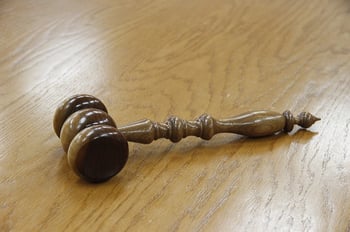A DUI conviction could make it more difficult to get job. Employers can conduct a criminal background check to see if you have any convictions. Nonetheless, you do have some rights as a job applicant.
Read MoreA DUI conviction could get you fired from your job. It could also make it harder for you to become employed in future positions. Know your rights as an employee and job applicant.
Read MoreThe only way DUI charges can be reduced is for the government to amend the charge to a lesser offense. This is rare, but not impossible. It is completely dependent upon the details of your case.
Read MoreA third DUI is considered a felony charge in Massachusetts. It comes with a minimum jail sentence of 180 days if you are convicted, 150 days of which you must serve incarcerated.
Read MoreA plea bargain is a compromise between a prosecutor and a defendant. Your lawyer may advise you to accept a plea bargain, depending on the facts of your case. However, plea deals aren’t usually in your best interest if you’ve been charged with three...
Read MoreSecond Offense DUI is a misdemeanor in Massachusetts. Any subsequent DUI offense is a felony under Massachusetts law. While every DUI charge includes the possibility of jail time, first and second offenders do not typically serve time in jail.
Read MoreIf you refused the breath test and are charged with a second offense, you will lose your license for 3 years. If you are later convicted, you’ll lose it for an additional 2 years (5 years total) and will not be eligible for a hardship license...
Read MoreIt’s your right to challenge the state of Massachusetts to meet its burden of proof. The stakes are much higher on a second OUI. If you fight your second OUI charge, have an experienced attorney at your side.
Read MoreAccording to Massachusetts law, a second offense OUI is punishable by up to 2.5 years of jail time. But most people who get a second OUI do not go to jail. Instead, they qualify for an alternative disposition which may include probation or a...
Read MoreMassachusetts no longer has an expungement statute. Your child's record cannot be "wiped clean," but you may be able to seal their record with the help of an attorney. Generally, sealed records are only accissible to law enforcement.
Read More









